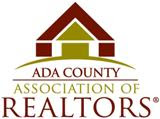The big question on everyone’s mind, going into January, was: “Would January be a replay of last year; or will we continue our fragile recovery?”
The answer, in a word, “both”.
January sales pushed the 300 unit number and were up 18% compared to January ’09…remembering that January ’09 was one of our worst months in more than a decade.
January ‘10 sales were 25% down from December ’09. Historically, January does lag behind December.
Pending sales in January up were up 25% from December to 766. Is this the result of the Home buyer Tax Credit extension? To some extent… Remember that our affordability is better than ever; mortgage rates are near 30 year lows and our population continues to grow.
Almost half of our sales continue to be in the price range of the First Time Buyer. In January 48% of homes sold were <$160,000.
Median home price increased by 1% compared to December to $169,000. This is the highest our median has been since August ’09. This is like a result of several factors. Inventory continues to shrink. Competition for the lower priced inventory is growing….and there’s that tax credit.
Inventory continues to decline. In January there were 2,991 active listings. This is the lowest it’s been since April of ’06. New inventory coming on is in the prime price.
Half of all homes sold in January were less than $160,000.
We have seen positive developments in the 1st couple of weeks that suggest the Feds are making some moves that may nurse along our recovery.
NAR succeeded in convincing FHA to eliminate what was known as “anti-flipping” rules. Investors no longer have to hold a property for 90 days after closing.
Call it three birds with one stone: The federal government hopes simultaneously to help low-down-payment home buyers, investors who fix up foreclosures, and local communities burdened with too many bank-owned and foreclosed homes -- all with one potentially far-reaching policy change.
The FHA maintained its 90-day anti-flipping rule through much of the last decade. But now it's suspending the policy, at least for the next year.
The objective is to speed sales of renovated houses to first-time buyers and other purchasers. With foreclosures at record levels -- an estimated 2.8 million filings last year alone -- many communities are faced with excesses of bank-owned properties sitting unsold, often in poor repair.
By waiving the 90-day rule, private investors will be more likely to bid on these houses, fix them up and sell them to buyers who will now be able to gain early access to FHA financing, which offers 3.5% down payments.
NAR also just announced a joint effort with the National Community Stabilization Trust to reclaim neighborhoods wracked by high levels of foreclosed and abandoned property, property disinvestment, extremely low prices and low resident confidence.
The National Community Stabilization Trust is a nonprofit organization that facilitates the transfer of foreclosed and abandoned properties from financial institutions nationwide to local housing organizations, and provides access to financing in order to promote productive property reuse and neighborhood stability.
The only “fly” in our ointment is the number of distressed properties. Short sales and foreclosures continue to increase now topping 60%.
There are efforts underway to try to improve the process, but the fact remains, many of our neighbors cannot afford to keep their homes. Without an improvement to our employment picture…things can only get so much better.
Thursday, February 11, 2010
Subscribe to:
Post Comments (Atom)

.jpg)

No comments:
Post a Comment
By submitting your comment to this blog, you are allowing ACAR the right to use and/or display it at our discretion.
We reserve the right to remove or edit any comment due to offensive or inappropriate language, relevancy, commercial endorsements, and spam. This could be done manually or due to automated spam detection software. We will not remove or edit comments we disagree with nor will we edit comments to change the commenter’s intention.